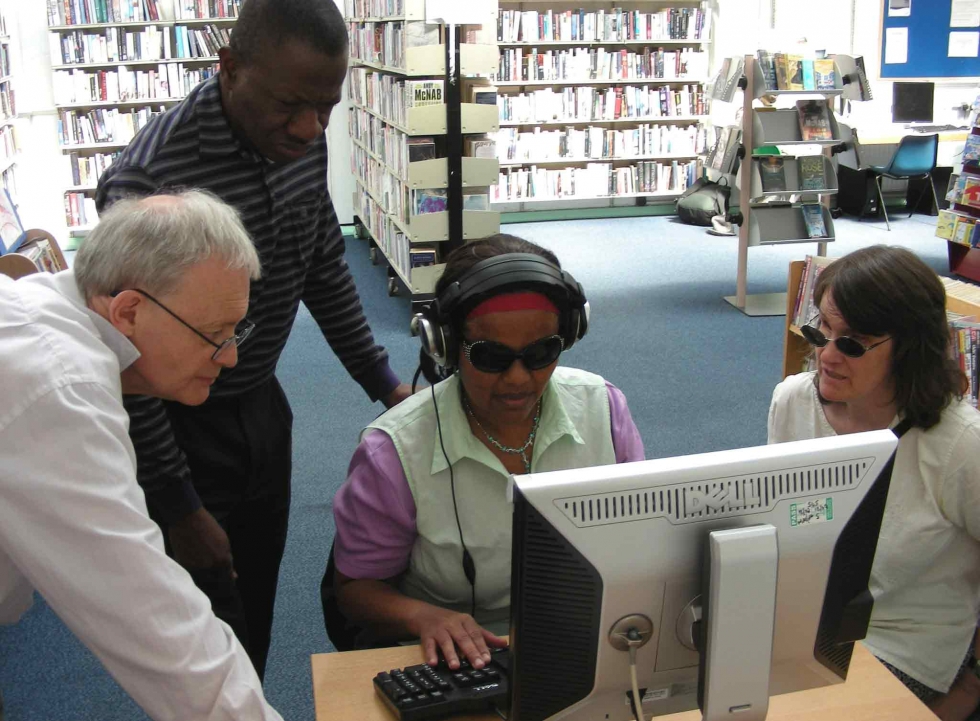 ...how a Get Online Week grant opened the gateway to computers and the internet for visually impaired people in Lambeth
...how a Get Online Week grant opened the gateway to computers and the internet for visually impaired people in Lambeth
In October 2010 Digital Unite worked with UK online centres to run a small grants scheme as part of Get Online Week. Those individuals and organisations that ran events during that week were eligible for grants of up to £1,000 to help with their digital inclusion activities.
One recipient, Christina Burnett, of Wide Eye Pictures, successfully received a £200 grant to support her work with helping visually impaired people in Lambeth use computers and the internet. Christina is founder of Digital Tuesdays, a self-funded initiative which runs various digital activities in local libraries. She became interested in accessibility to computers for visually impaired people after her father developed a degenerative eye disease. A latecomer to modern technology, he was in his 90s when he discovered the joy of the internet and she had to learn fast to help him get the most out of this new found passion.
Christina discovered the specialist screen reader software that enables visually impaired people to use computers can be complicated and expensive. Whilst libraries provide the perfect local environment for people to be introduced to digital technology, many library staff need support to understand the benefits of screen readers and how they work so they can help others.
The Get Online Week grant proved timely, helping Christina put an idea into practice. Working alongside her blind comrade, Roger Lewis, a Specialist Disability Worker, they persuaded the Tate South Lambeth Library to trial a screen reader session using Thunder, an award-winning and free talking software product. The £200 was used to buy headsets and to enable someone from Thunder to come along and give a first-hand demonstration.
A wide range of people attended the launch session fuelling much interest from the other libraries in Lambeth. As a result the free screen reader is now installed in nine other libraries. Christina has now set up a community interest company to seek further funding to support library staff with learning about computer accessibility and to develop a computer outreach programme for blind people in the community. More widely she is also exploring a fundraising initiative with a local primary school to purchase large print keyboard stickers for every computer keyboard in her local libraries.
Talking about the initiative Christina said: “A large number of visually impaired people are unemployed and many older people find their lives significantly inhibited as their eyesight deteriorates over time. Those who lose their sight suddenly at any age often end up on a long and convoluted road of assessment and evaluation before they’re given the help they need.
“Most of us will experience sight impairment as we get older, so it’s essential that knowledge in this area is mainstreamed. The new technologies are amazing but most people outside the visual impairment community know little about them. The children we worked with on the keyboards were fascinated and loved the ‘talking computers’ and we have people in their 70s and 80s who never thought they could learn to use a computer because of their eyesight who are now surfing the internet. The initial funding enabled us to demonstrate how a real and positive difference can be made, not just to people who are visually impaired but also to those who are inspired by them.”